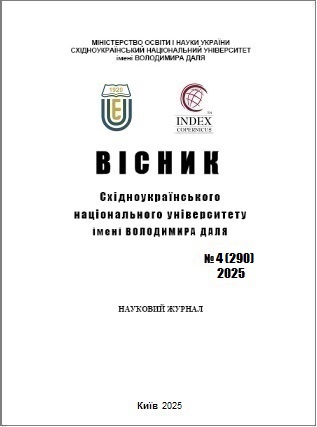Study of the impact of discrete control of the cooling and condensation unit on the efficiency of ammonia production
DOI:
https://doi.org/10.33216/1998-7927-2025-290-4-72-77Keywords:
air cooling apparatus, mathematical model, parameter optimisation, discrete control system, economic efficiencyAbstract
Optimisation of the ammonia synthesis process is about determining the most efficient parameters and operating conditions to achieve the desired goals or maximise productivity under limited resources and external factors.
Key areas where optimisation is critical for ammonia synthesis include
Rational use of resources - optimisation reduces the consumption of energy, raw materials and chemicals, which helps to reduce production costs and increase the efficiency of secondary resources.
Improved product quality - optimisation ensures consistent production of high quality ammonia, which is critical for its further use.
Improved process safety - optimal operating conditions contribute to a safe production environment, minimising the risk of accidents, fires and explosions.
Stability of equipment operation - optimisation reduces parameter fluctuations, which has a positive impact on process reliability and end product quality.
Reduced overall costs - optimisation can minimise the cost of equipment operation, energy consumption and maintenance.
Optimisation is an important tool for improving the efficiency, productivity and sustainability of the ammonia production process.
This article discusses the application of a discrete-time control system with a mathematical model of an air-cooled apparatus (ACA) and analyses the economic feasibility of implementing this system.
The analysis allows us to determine whether approximate solutions are acceptable for practical use or whether there is a need to apply more accurate methods of solving the problem.
The first step was to choose the optimal degree of discretisation, which allowed, on the one hand, to accurately take into account minor changes in values, and, on the other hand, to avoid an excessive increase in the number of possible states, which complicates calculations, especially when working with complex mathematical models. It has been established that the economic efficiency of the proposed discrete control system with a model of a cooling and condensation unit with a degree of discreteness of 0.5, since it allows to obtain up to UAH 2.7 million per year due to electricity savings.
References
1. О.В. Засядьвовк, А.В. Писаренко Синтез екстремальних систем керування ISSN 1811-4512. ElectronComm 2014, Vol. 19, №3(80) https://mail.ukr.net/desktop#readmsg/16919466141416568376/f0
2. Method for on–line identification of a first order plus dead–time process model, Electronic Letters, 31(15), 1297–1298. https://doi.org/10.1049/el:19950865
3. Verhaegen M. Filtering and System Identification: A Least Squares Approach. 2 nd ed. / M. Verhaegen, V. Verdult. Cambridge University Press, 2012. 422p. https://books.google.com.ua/ books/about/Filtering_and_System_Identification.html?id=vlOUuAAACAAJ&redir_esc=y
4. Soderstrom T. Instrumental variable methods for system identification // Circuits, Systems and Signal Processing / T. Soderstrom, P. Stoica. 2002. Vol. 21, Issue 1. Pp. 1–9. https://link.springer.com/ article/10.1007/BF01211647
5. Абдалхамид Д. Разработка комбинированной модели для задач оптимизации / Д. Абдалхамид, М.Г. Лория, П.И. Елисеев, А.Б. Целищев // Наука и техника (международный научно-технический журнал): Минск БНТУ, 2014.-№3.-С.209-213. https://sat.bntu.by/jour/article/view/ 64?locale=ru_RU
6. Loriia M. Experimental investigation of the method of determination of optimal controller settings / M. Loriia // EURIKA: Physics and Engineering. 2019. № 2. Р. 16–22. https://journal.eu-jr.eu/engineering/article/view/864
7. Maryna Loriia, Principles and stages of creation of automatic control systems with a model of complex technological processes / Olexii Tselishchev, Petro Eliseyev, Olga Porkuian, Oleksandr Hurin, Alla Abramova, Sergii Boichenko // Eastern-European Journal of Enterprise Technologies 2022- DOI: 10.15587/1729-4061.2022.270519
8. Driankov, D. Palm R. Advances in Fuzzy Control [Text] / D.Driankov, R.Palm // Physica-Verlag. Heidelberg. Germany. 1988. P. 129-137.
9. Лорія М. Г. Знаходження шляхів забезпечення максимальної ефективності роботи колони синтезу метанолу / М. Г. Лорія // Вісник Донбаської державної металургійної академії. – 2019. №2. С. 43- 50.

